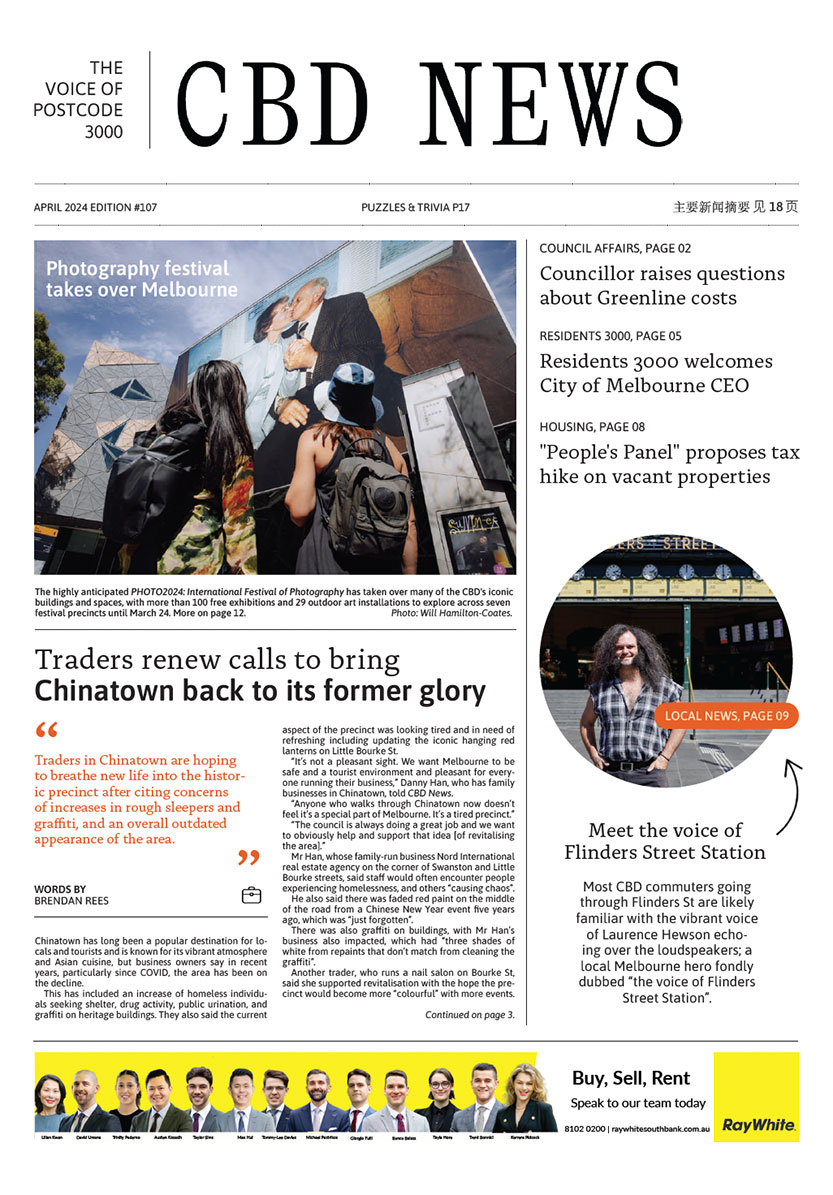Melbourne CEO reflects on seven years at the top
By Shane Scanlan
After seven years in the top job, the city’s top bureaucrat moves on this month at a time of unprecedented tensions around population growth within the CBD.
City of Melbourne CEO Kathy Alexander retires on December 3, her 60th birthday.
State Government approvals will likely see tens of thousands of new residents call the CBD home in the next few years, but it’s the city that will be expected to provide the required community infrastructure.
Dr Alexander couches her responses with the skilled diplomacy which saw her appointed in the first place to the top job in April 2008.
But it is obviously frustrating for the city to be expected to provide for growth it has no direct control over.
“The issue is the sheer volume,” she said.
“From my point of view, it can’t just be the city that has to accommodate that volume. The volume really is something that needs to be worked out across the whole state. It’s a political question that has to be worked out.”
The most obvious tension is the law which sees the Planning Minister determining applications above 25,000sqm – which equates, these days, to any building of a reasonable size.
And, whereas 25 years ago the CBD was a place to come to work, today it is rapidly transforming into a place to live.
Dr Alexander said: “I’m not surprised that the growth of population has happened. But if the CBD is not going to be like it has been in the past in terms of its commercial predominance, then we need the same sort of community plans that we need for City North, Southbank, Docklands and so on. It requires a lot of thinking.”
“If the population is going to grow, then a lot of community amenity will be required. Yes, we’ve got libraries, health services and all of these things here but what does population growth mean in terms of parks, in terms of maternal and child-health care, youth services, etc?”
Dr Alexander said the city was working on a community infrastructure plan for the CBD but agreement with the state was paramount to its success.
“The state will look at the city from the state’s perspective. We will look at things from the community’s perspective,” she said.
“We know we’re running a capital city and we have state-wide responsibilities, therefore the relationship between the State Government and the capital city council is fundamentally important to what happens in Melbourne.”
Dr Alexander said her time at the helm had been simplified because of the council’s consistent adherence to the “Future Melbourne” plan and principles which were first suggested by the John So council in 2008.
“I’ve had a pretty clear path to follow in those seven years,” she said.
“For the past six years the council has been working on a very solid set of directions around those major (Future Melbourne) community goals.”
So, how does she rate her performance?
“I don’t like to appraise my own performance, but the fact that I keep getting my contract signed is a good sign,” she said.
“I can certainly see huge progress being made in the directions that council wanted.”
“I’ve always been able to report that the plan’s been implemented and always ahead of budget and, if you look at the international recognition that the City of Melbourne has had for the projects that it has run and the programs that it implements and the directions that it has been taking, there’s no doubt that our excellence in those endeavours has been recognised.”
Dr Alexander said her task as CEO had also been made easier by the alignment and commitment of her staff.
“It’s a great organisation. The organisation itself is fundamentally committed to the City of Melbourne,” she said.
“We’ve done culture surveys amongst the staff and the thing that gets them up in the morning to come to work is the city.”
“Making Melbourne a bold, inspirational city is on everyone’s mind.”
And, while Dr Alexander will miss the role, she won’t miss the 12-hour days and the burden of reading all the council’s papers every Sunday.
She also says her retirement is a good opportunity for the organisation to introduce new energy and new thinking at the top.
She said a health scare for her daughter and grandson last year was a contributing factor to her decision to retire.
“She had a very difficult pregnancy and it was touch and go for both herself and the baby,” she said.
“Trying to ‘fit in’ my family, rather than focus on them, was an interesting time in my life.”
“And also I’m 60 and things start to happen after 60 and I’m fit and healthy. Do I want to wait until I’m 70 or 65 when maybe I’m not so healthy?”
Dr Alexander said she would pursue some board positions where she would be able to continue to contribute to organisations at a strategic level rather than at the operational level.

Backloading across borders with Transcorp – navigating interstate moves with ease



 Download the Latest Edition
Download the Latest Edition